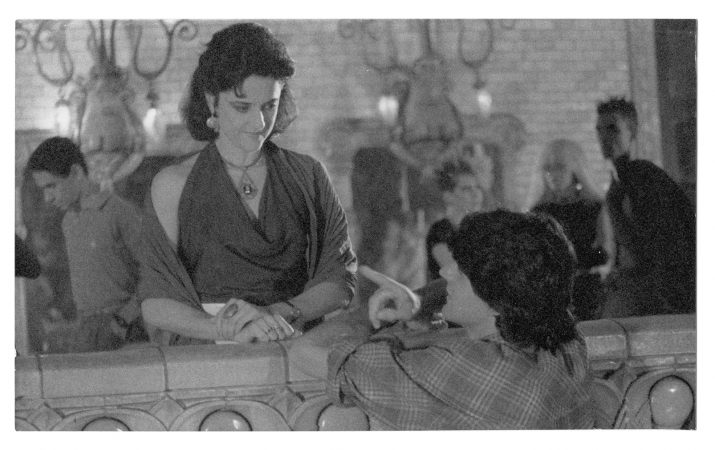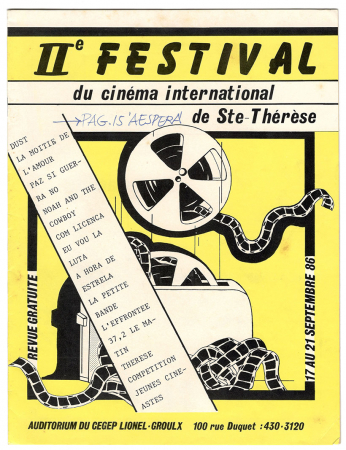The short film A Espera was shot in only eight days at the Assyrius restaurant in the Municipal Theater of Rio de Janeiro, always at night and early in the morning. The plot outline was written by Luiz Fernando Carvalho after reading Roland Barthes’s bookA Lover’s Discourse: Fragments– especially about the chapter regarding ‘A Espera’. The director, at 22 years old, wrote the plot outline during late hours of the night. He developed the script with Maurício Farias, with which he shared the direction of the short film.
The cast accepted to participate in the film without being cached due to the project budget. “I did this job because it fascinated me,” Marieta Severo said at the time. Luiz Fernando Carvalho, although a newcomer in directing and screenwriting already had a rising career in television, having been assistant director in miniseries such as Grande Sertão, Veredas, based on Guimarães Rosa´s work and direction by Walter Avancini, and O Tempo e o Vento, of the novel by Érico Verissimo and direction by Paulo José.
The script won the award for the promotion of Embrafilme Short Films. The 18-minute short film had huge repercussions. It received the award for Best Short Film, Best Cinematography and Best Actress at Gramado Festival; Concha d’Oro at the San Sebastián Festival and Grand Jury Prize at Ste-Therèse Festival in Canada.
A Espera has been screened in commercial theaters along with three other 80’s short film icons, founding the National Short Film Bank, which has circulated throughout the country with great public and critical success. The other short films were: Ma Che Bambina, by Cecílio Neto; O dia que Dorival Encarou a Guarda, by Zé Pedro Goulart and Jorge Furtado and Amor que fica, by Alain Fresnot.



